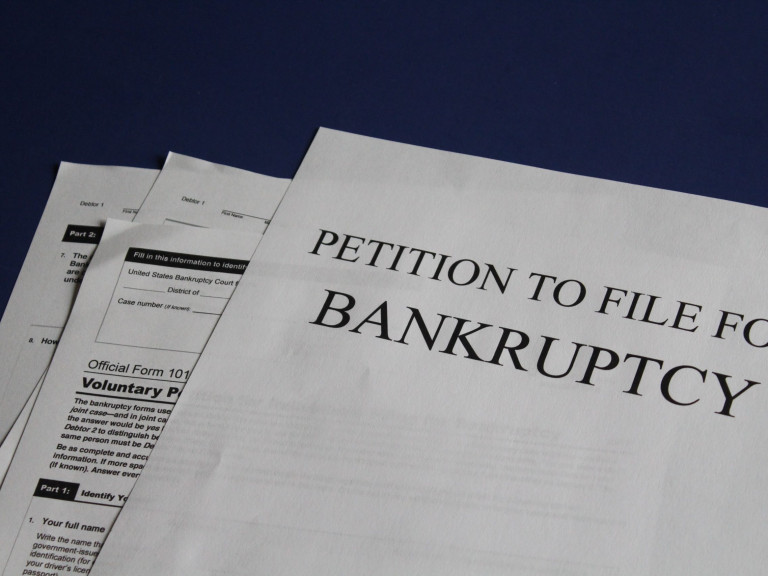SAGINAW CHAPTER 7
Bankruptcy
Attorney
Helping Michigan Residents Resolve Debt and Start Over
Chapter 7 bankruptcy is often called “fresh start” bankruptcy
It can wipe out a lot of unsecured debt. Obligations like credit card debt, payday loans, medical bills and other unsecured debts may be eliminated completely. In just a few months, a successful Chapter 7 filer can go from sleepless nights, cutting corners, juggling bills and dodging debt collectors to the peace of mind that comes with a new beginning.
How Does Chapter 7 Work?
A Chapter 7 case begins when you file a petition and schedules with the appropriate U.S. Bankruptcy Court. For Saginaw residents, that’s the U.S. Bankruptcy Court for the Eastern District of Michigan. The petition and schedules contain information about your income, your debts, and your assets.
Ready to Start Building a Brighter Financial Future?
The first step toward reclaiming control of your finances is to educate yourself about your options. Take that step today by scheduling a free consultation with attorney Josh Reinert.
Learn more about bankruptcy by downloading our free e-book
Chapter 7 can provide immediate relief
In most Chapter 7 cases, the bankruptcy court issues an automatic stay as soon as the case is filed. That’s a court order telling creditors and debt collectors to stop trying to collect from you. Just like that, the phone stops ringing. Collection actions like wage garnishment, automobile repossession and foreclosure are frozen. That’s true even if someone is in the middle of a debt collection lawsuit against you, or has already received a judgment against you.
The Chapter 7 Process is Low Stress
1. Credit Counseling
First, you complete a credit counseling session. This is inexpensive, typically takes about 30 minutes, and can be completed online or by phone.
2. Meeting & Discussion
Then, you work with your bankruptcy attorney to make sure your financial information is complete and accurate in the petition and schedules. After your attorney files the petition, the automatic stay typically takes effect right away.
We offer in person, phone consultation, and Zoom appointments.
3. Attend Bankruptcy Hearing
You’ll be scheduled for a hearing, which you may hear described as a “341 meeting” or a “creditors’ meeting.” This meeting usually takes 10 minutes or less. The bankruptcy trustee will ask some questions to make sure all of your information is accurate and that you understand how bankruptcy works. You’ll provide identification. In most cases, that’s all there is to it.
Your creditors have the right to show up and ask questions, but that almost never happens--especially if there are no assets available to pay creditors.
4. Just wait and take another course
Then, you wait. While you’re waiting, you take another course, called the “financial management course” or “debtor education.” This course is also inexpensive and easily available from home. If the bankruptcy trustee doesn’t need any additional information and no creditors object, you may receive your discharge as soon as 3.5 months after filing.
Most Chapter 7 bankruptcy filers never go to court.
Limitations on Chapter 7 Bankruptcy
Of course, Chapter 7 isn’t for everyone. For example, secured debts like your mortgage and car loan can’t be discharged in a Chapter 7 case unless you give back the property. So, Chapter 7 is usually not the right answer for people who have secured debts to manage and want to keep their homes, cars, and other collateral.
There are also a few unsecured debts that can’t be discharged in a Chapter 7 case. The most common include most student loan debt, some tax debt, and domestic support obligations.
Many people who have significant assets also avoid Chapter 7, because non-exempt assets can be sold by the trustee to pay creditors. Fortunately, Michigan’s bankruptcy exemptions protect important assets like your home, your car, certain household goods, pets, retirement accounts and more. Though there are caps on these protections, they are sufficient for most people who want to file Chapter 7. Most people who file don’t lose any property.
Eligibility for Chapter 7
Chapter 7 bankruptcy is meant to help people who are in difficult financial circumstances and weighed down by unmanageable debt. The first step in determining whether someone is likely eligible to file for Chapter 7 bankruptcy is simple: compare your income to the median income for a household the same size as yours in your state.
The Department of Justice (DOJ) updates this information regularly. Through October of 2021, Michigan’s median income for one person is $53,113. For a household of four, that number is $93,653.
If your income falls below the median, you can stop the calculation and file your case with no presumption of abuse. If your income is above the median, the process gets a little more complicated. This test, called the “Chapter 7 means test,” involves calculating certain allowed expenses and subtracting them from your income to determine how much money you have left after those expenses. Your bankruptcy lawyer can work through this calculation and determine whether Chapter 7 is an option for you.
Areas We Serve
- Lewiston
- Alpena
- Hale
- Rogers City
- Cheboygan
- Oscoda
- Pinconning
- Vassar
- Mio
- Cass City
- Breckenridge
- St. Louis
- Chesaning
- Gladwin
- Clare
- Farwell
- West Branch
- Standish
- Tawas
- Oscoda
- Rose City
- Alma
- Grayling
- Roscommon
- Harrisville
- Houghton Lake
- St. Charles
- Port Austin
- Atlanta
- Onaway
- Presque Isle
- Lupton
- Hale
- Sterling
- Unionville
- Sebewaing
- Bay Port
- Caseville
- Cass City
Chapter 7 Bankruptcy FAQs
What happens to your car in a Chapter 7 case depends on how much the car is worth, whether you have a car loan, and whether you want to keep the car. Some of the options in a Chapter 7 case may include:
- Reaffirming the loan, meaning that you agree to keep making payments and you keep the car
- Including the car loan in the bankruptcy, but continuing to make payments and keep the car
- Giving the car back and discharging the debt if the payment is unaffordable or the car is worth significantly less than you owe
If none of the options available in Chapter 7 work well for you, you may want to explore the possibility of filing a Chapter 13 case instead.
We understand that protecting your home is a top priority for most people. Michigan’s bankruptcy exemptions protect a significant amount of equity in your home, which means most people who file keep their homes.
If your home is unaffordable or significantly underwater, you may choose to use Chapter 7 bankruptcy to surrender the property and walk away from the loan. We will thoroughly explain the protections available to you and discuss your options so you can make the best possible decision for you and your family.
If you are behind on your mortgage and facing possible foreclosure, we will discuss the differences between Chapter 7 and Chapter 13 bankruptcy and help you determine which might be a better option for you.
The vast majority of people who file for Chapter 7 bankruptcy don’t lose any property at all. That’s because most property the average family owns is protected by Michigan’s bankruptcy exemptions.
If you do have property that may be at risk, we will assess that risk before you file and work with you to find the best solution, whether that is surrendering the property in order to discharge a large amount of unsecured debt or opting to repay your debt through a Chapter 13 plan so you can keep the property.
Yes. The automatic stay entered in most Chapter 7 cases stops lawsuits. If the other party attempts to move the case forward, you can provide the court with a copy of your automatic stay order and that will freeze the proceedings.
If the lawsuit involves a dischargeable debt, the case should not start back up. Instead, the discharge order will take over for the automatic stay at the end of the case and put an end to the lawsuit. If the lawsuit involves one of the few types of debt that is not dischargeable, it may move forward when the automatic stay is terminated.
Probably not. There is one required hearing, called a “meeting of creditors.” However, this isn’t really a court proceeding. The meeting is run by the bankruptcy trustee, not a judge. And, it often happens in an office or conference room rather than a courtroom. It’s usually short, and involves the trustee asking you some standard questions about your finances and the documents you filed.
You may have to go to court in special circumstances, such as if a creditor objects to your discharge. But, that type of issue is unusual in consumer cases.
Request your free consultation
Ready for a better financial life? Take the first step now. We invite you to give us a call toll free at 989-799-8860, or fill out the form below.



